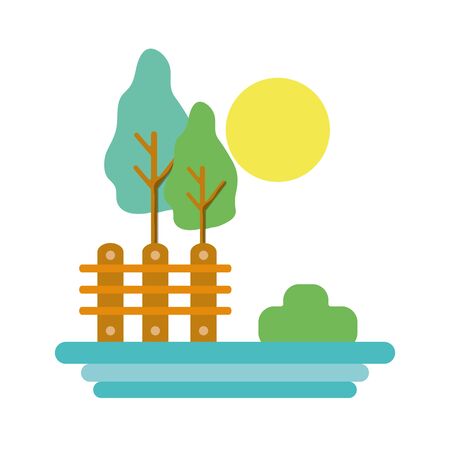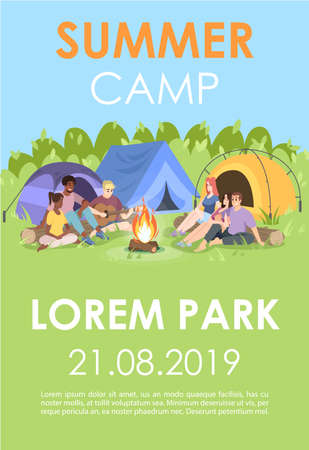Understanding Psychological Resilience
At its core, psychological resilience is the ability to adapt and recover from stress, adversity, or trauma. In the world of survivalist camping, this trait becomes not just helpful but essential. When you’re miles away from comfort, faced with unpredictable weather, limited resources, and solitude, your mental strength is what keeps you grounded. Resilience isn’t about being unbreakable; it’s about bending without breaking—about finding calm in chaos and learning to move forward despite setbacks. For many Americans who embrace survivalist camping, resilience means more than enduring tough moments; it’s a practice of self-discovery and growth. It helps campers manage fear and uncertainty, make clear decisions under pressure, and maintain hope even when challenges pile up. Understanding and cultivating resilience shapes every experience in the wild, turning hardship into an opportunity for deeper connection—with nature, with others, and with oneself.
2. The Mental Health Benefits of Immersive Wilderness
Survivalist camping goes beyond outdoor recreation—it offers a unique path to emotional wellness by reconnecting us with nature’s simplicity. Stepping away from urban chaos, immersing ourselves in the wild, and embracing primitive skills can profoundly impact our mental health.
How Nature Supports Emotional Well-being
The sights, sounds, and rhythms of the wilderness naturally lower stress levels. Studies show that exposure to green spaces reduces anxiety and improves mood. Survivalist camping intensifies this effect by fostering mindfulness and present-moment awareness as we navigate the elements.
Key Benefits of Immersive Wilderness Experiences
| Benefit | Description |
|---|---|
| Stress Reduction | Nature immersion lowers cortisol and helps regulate the nervous system. |
| Mood Enhancement | Outdoor experiences boost serotonin and dopamine, supporting happiness. |
| Increased Mindfulness | Primitive tasks require focus, grounding us in the present moment. |
| Resilience Building | Overcoming challenges builds confidence and adaptability. |
| Social Connection | Cohesive group experiences foster belonging and shared purpose. |
Practical Ways to Engage with Nature during Camping
– Practice mindful breathing while listening to forest sounds
– Observe wildlife or track natural patterns without digital distractions
– Prepare meals over an open fire, focusing on each sensory detail
– Share stories around a campfire to deepen group bonds
Immersing yourself in wilderness through survivalist camping is not just about enduring—it’s about thriving emotionally. By slowing down and connecting with nature, you create space for reflection, recovery, and genuine well-being.

3. Coping Strategies: Mindset and Mindfulness
Survivalist camping is more than just physical endurance; it’s a test of the mind. When you’re miles away from comfort, psychological resilience becomes your lifeline. The art of coping begins with mindset. Positive reframing—seeing obstacles as opportunities to learn—helps campers shift from anxiety to adaptability. For example, if rain ruins your firewood, it’s a chance to practice patience or discover new ways to start a fire.
Mindfulness is another essential tool. Staying present, instead of worrying about what could go wrong, grounds you in the now. Simple breathing exercises or noticing the textures and sounds around you can slow racing thoughts and ease stress. Survivalists often use short mindful pauses during challenging tasks: feeling the breeze, listening to birds, or focusing on each breath while setting up camp.
Combining positive reframing with mindfulness strengthens mental health in the wild. These strategies transform uncertainty into curiosity and fear into focus. They help campers stay calm, make clearer decisions, and find peace—even when nature tests every limit.
4. Overcoming Challenges and Building Confidence
Survivalist camping is about more than just enduring the elements—it’s a transformative journey that nurtures psychological resilience. When you face adversity in the wild, from sudden storms to dwindling supplies, you’re pushed to tap into inner reserves of grit and adaptability. These experiences teach valuable lessons in self-trust and personal growth, which are foundational for strong mental health.
Adversity as a Teacher
Each obstacle encountered during survivalist camping—whether it’s building a shelter from scratch or navigating unfamiliar terrain—becomes an opportunity to learn. These moments require resourcefulness and creative problem-solving, helping campers develop a mindset that embraces challenges rather than avoids them.
Building Blocks of Resilience
| Challenge | Skill Developed | Mental Health Benefit |
|---|---|---|
| Unpredictable weather | Adaptability | Reduced anxiety around uncertainty |
| Limited resources | Resourcefulness | Increased confidence in problem-solving |
| Navigational errors | Self-correction & patience | Greater self-trust and calm under pressure |
The Ripple Effect on Daily Life
The resilience built in these demanding outdoor scenarios doesn’t stay in the woods. Campers often find themselves approaching everyday stressors with greater composure and optimism. Facing and overcoming adversity in nature redefines setbacks as opportunities for growth, empowering individuals to move through life with steady confidence and a sense of balance.
5. Community, Solitude, and Support Systems
Survivalist camping is as much about the mind as it is about the environment. In the backcountry, psychological resilience is shaped by how we navigate both connection with others and moments of healthy solitude. Humans are inherently social; even in the wild, we crave support and shared experience. A strong community—whether its a close-knit group of fellow campers or a trusted network back home—anchors us, offering emotional backing during tough times. Honest conversations around the campfire, shared meals, or simply knowing someone has your back can be the difference between thriving and just surviving.
Yet, solitude also plays a vital role in building mental strength. Out there, away from constant noise, we reconnect with our thoughts and emotions. Solitude allows for self-reflection and clarity; it encourages us to face discomfort head-on and discover inner reserves of calm and resourcefulness. Healthy alone time helps process stress and build confidence in our abilities. For many survivalists, these quiet moments become essential grounding rituals that renew mental energy.
The most resilient campers know when to lean on others and when to seek quiet space for themselves. This delicate balance nurtures both self-reliance and belonging—a dual foundation crucial for lasting mental health in the wild. Whether you find strength in conversation or in silence among trees, recognize that both connection and solitude are powerful tools for psychological well-being on any survival journey.
6. After the Adventure: Integrating Lessons Back Home
Survivalist camping does not end when you pack up your gear and return to daily life. The true value of the experience lies in how you bring its lessons home. Resilience, built through moments of uncertainty and challenge, can quietly transform your approach to everyday stressors. Simple routines—like mindful breathing learned beside a campfire or gratitude for basic comforts—become anchors in the rush of modern living. Small acts, such as walking barefoot on grass or spending a few quiet moments outside, help reconnect with nature’s calming presence even in urban spaces.
Building Daily Resilience
Integrate resilience by noticing your reactions to small frustrations. Pause, breathe, and remember how you handled discomfort in the wild. Survivalist camping teaches that discomfort is temporary; this mindset helps you navigate work deadlines, busy commutes, or family pressures with a steadier outlook.
Cultivating Mindful Awareness
Carry forward the mindfulness gained from being immersed in nature. Practice unplugging from screens for short intervals or savoring a simple meal without distraction. These habits echo the focus and simplicity of camp life, grounding you amid daily noise.
Nurturing Community and Connection
The camaraderie found in shared hardship is another gift of survivalist camping. Foster deeper connections at home by supporting friends or volunteering locally. Strengthened by your outdoor experiences, these relationships provide mutual encouragement when life feels overwhelming.
By weaving these insights into your routine, the spirit of survivalist camping continues to nurture psychological resilience and mental health long after the adventure ends.


